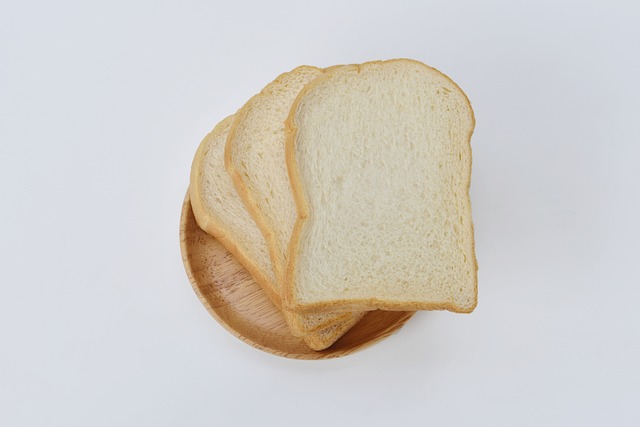There are various reasons why people choose to adopt a low-carb diet. You may have heard that eliminating carbs is a quick method to reduce weight.
Some folks feel more energized or perform better when consuming fewer carbohydrates. Some choose a lower carbohydrate diet to assist in controlling their blood sugar levels. Yet, carbohydrates are a required macronutrient, and no diet is suitable for everyone.
Low-carbohydrate diets can have health benefits when followed for a short period. This dietary regimen may help some people improve their blood sugar levels and reduce weight. Yet, there needs to be a precise definition of a low-carb diet, and studies on its long-term safety and efficacy have generated conflicting results.
A low-carb diet may also be difficult for people with restrictive or disordered eating histories. If you’re wondering if a low-carb diet is good for you, discover more about how it works, what it entails, and how to get started.
What Exactly Are Carbohydrates?
Carbohydrates are a type of nutrition that is made up of simple sugars (monosaccharides). When these sugars link together, complex compounds develop. Disaccharides, double sugars, like lactose and sucrose; oligosaccharides, short-chain sugars, like glycoproteins and glycolipids; and polysaccharides can be formed depending on how the sugars are mixed; long-chain sugars, like starch and cellulose.

When you consume carbs such as starch or sugar, your body turns them into glucose for energy. When your body consumes more carbs than it can burn for fuel, it stores the excess fat. According to several studies, the type of carbohydrates consumed is more important than the quantity. For instance, some carbohydrate-rich foods degrade faster than others.
When this happens, blood sugar levels skyrocket. The glycemic index is a technique that we use to measure these surges (GI).
What Exactly Is a Low-Carb Diet?
Many of us consume more carbohydrates than our bodies require. Individuals with diabetes may be at risk if they consume more carbohydrates than their bodies can tolerate, as this will impact their blood sugar levels.
Carbohydrates are required for your body to function properly. A low-carb diet requires you to maintain a carbohydrate consumption that is adjusted to your body’s demands. It involves avoiding carbohydrate deprivation or overeating.
If you’ve ever gone out to dinner with a friend who avoids the bread basket because they’re “monitoring their carbs,” you’re already aware of our society’s carbohydrate attitudes. Nevertheless, these ideas about carbs not only oversimplify the facts; they also fail to convey the essence of a low-carb diet. While starchy foods like bread, pasta, and potatoes include carbs, not all carbohydrates are starches.
Health Advantages
Reduced sugar intake will benefit almost everyone. Leading health groups recommend that added sugars be limited to a few teaspoons per day.
The extent to which people gain from increased carbohydrate restriction is determined by how well our unique bodies handle carbs, as starches and sugars in our food end up as sugars in our bodies.
Low-carb diets are more likely to benefit people with certain health issues than other dietary regimens. Low-carb diets may help with the following medical conditions:
- Fatty liver syndrome
- Hypertriglyceridemia
- Insulin sensitivity
- Syndrome of Metabolic Syndrome
- Prediabetes
- Diabetes mellitus type 2
Before making dietary adjustments, if you are on medication to decrease your blood glucose or blood pressure, consult your doctor. Some medications that you take may need to be modified when you lose weight.
Several Low-Carb Diet Programs
The term “low-carb diet” actually applies to a variety of dietary programs, but they all share one feature: a modification or reduction in added starches and refined carbs. Low-carbohydrate diets are sometimes known as reduced-carbohydrate or low-glycemic diets.
A low-carb diet can be done in a variety of ways. Always talk with your health care practitioner before beginning any new eating plan, and consider seeking a referral to a qualified dietitian. Without the direction of a certified dietitian, embarking on a low-carbohydrate eating plan can have detrimental consequences. To avoid any negative consequences, it is usually advisable to have your food plan personalized to your specific needs.
There are three techniques to eating low carb:
Total Carbohydrate Decrease
You may put together meals based on a balanced diet of low-carb veggies, low-sugar fruits, healthy fats, and plenty of protein by using a low-carb food pyramid as a guide (ideally under 35 percent of your daily caloric intake).
Personalized Carbohydrate Consumption
Every one of us has a distinct glucose tolerance level. Some regimens are concentrated on assisting you in determining yours and changing your diet accordingly. This includes the Atkins and South Beach diets, as well as the Paleo diet.
The Ketogenic Diet
A ketogenic diet, an extremely low-carb diet that allows the body to use fat for energy rather than glucose, is one of the more popular regimens. This causes the body to enter a state known as keto-adaptation, in which fat burning can boost stamina and vitality.
How to Begin a Low-Carb Diet
First and foremost, especially if you have a medical problem, you should consult with your healthcare team before going low-carb regimen. Before you decide to proceed with this diet, speak to your doctor on whether or not a low-carb eating plan is right for you. Your doctor may also monitor how your carb intake affects your general health and provide help along the way.

Search Low Carbohydrate Foods
Most low-carb diets include a variety of non-starchy vegetables, meats, eggs, and other protein sources, low-sugar fruits like berries, dairy foods (such as cheese and yogurt), nuts and seeds, and foods high in healthy fats.
Low-carb tortillas and low-carb sauces are available as wonderful “extras” to go with these items. You might be amazed at the range of low-carb meals available, including baked items and sweets.
You can follow a low-carb vegetarian diet if you don’t eat meat. These diets rely on non-meat protein sources such as nuts and legumes.
Avoid processed carbs and added sugars. The “no white food” guideline, which comprises removing sugar, white flour, and white rice from the diet, can be a simple place to start. Eliminating sugary drinks is one of the most direct methods to lower your carb intake.
Change Your Eating Habits
You’ll probably notice a shift in your hunger once you’ve found the perfect amount of carbohydrates for you. In general, practice eating when you’re hungry and ending when you’re full.
When you’re hungry, choose foods that are in line with your diet plan. Nevertheless, just because an item is allowed on a low-carb diet doesn’t imply you may overeat it (cheese is a good example).
Understand Your Limitations
The amount of carbohydrates we require is determined by our age and activity level. As we become older, our calorie intake needs to decrease, and we probably don’t need as many carbohydrates as we did when we were younger.
Eating too many carbohydrates can cause blood sugar fluctuations, which can impact energy levels. If you have prediabetes and eat a high-carbohydrate diet, continuing to eat a high-carbohydrate meal plan may result in prediabetes or insulin resistance.

Whichever low-carb diet plan you adopt, it is always critical to listen to your body. If you are weary or sluggish, make changes to your diet. A dietician can guide you through the process.
Make Provisions for an Adjustment Period
Low-carb eating may be completely new to you. It’s useful to be aware of frequent low-carb diet blunders, such as avoiding fat and overlooking fiber (constipation is one potential side effect of low-carb diets).
It could also be unfamiliar territory for your body. Many people who begin a low-carb diet describe a “carb crash,” which can include symptoms such as jitteriness, fatigue, or simply not feeling like themselves. Understanding what to expect during your first low-carb week will help you mentally and physically prepare.
Seek Assistance
Seeing a low-carb diet as a passing fad or trend can set you up for disappointment. Instead, consider your decision to be a long-term strategy for improving your health—one that can and will change as you do.
Making lifestyle adjustments is never simple, especially if you have individuals or habits that keep you from accomplishing your goals. To avoid this, surround yourself with people who share your objectives and may even join you in making the same adjustments.
This is especially crucial during the first three months of a low-carb diet (or any lifestyle change, for that matter). Your new lifestyle habits will begin to become routine within a few months.
If you don’t have direct help, consider joining an online forum or support group where you can share your struggles and celebrate your successes. The long-term success of any lifestyle change requires ongoing positive reinforcement.
To Conclude
When your body adjusts to your new eating habits, you’ll likely see more benefits than you anticipated. Those who have long suffered from heartburn, for example, may find that dietary modifications might alleviate or even cure the illness. Some report having more energy, being able to concentrate better, or thinking more clearly.
Power comes from knowledge. The more you know about your options and yourself before embarking on a low-carb diet, the more prepared you’ll be to make and keep to adjustments.
